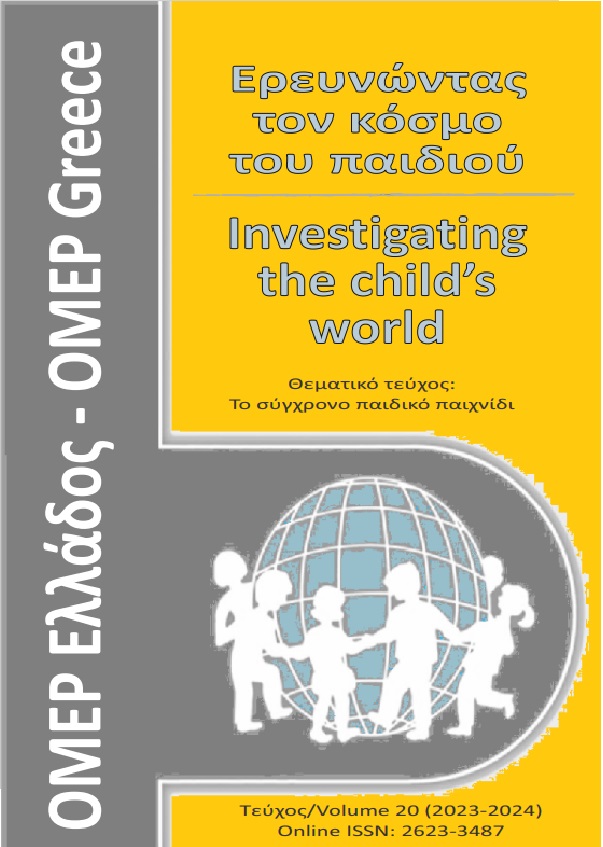Reflections on the effects of training preservice early childhood educators in children’s play
Abstract
Research in the field of early childhood teachers’ education, points to the importance of personal beliefs in both the formation of their professional identity as well as the future adoption of educational practices. It also reveals the complexity of achieving change in relation to both beliefs and practices, in all areas of preschool teachers’ education, including children’s play. The latter is of particular importance given the central role of play in most early childhood education curricula. Yet, existing research is very limited. In this context, the present study focuses on the educational experience of 16 university students who attended a course on play with an experiential approach. In order to study possible changes in students’ beliefs and anticipated practices regarding play, they filled out a specially designed questionnaire with both open and closed questions before and after the completion of the course and they also reflected on their educational experience. The findings disclosed limited, yet important, changes in the way students conceptualize play, its functions and its position in the early childhood education practice. They also revealed that the deconstruction of dominant perceptions about play, such as the dichotomy between play and learning or the instrumental approach to play as means to achieving prespecified goals, as well as the realization of the significance of teachers’ role, constitutes a real challenge regarding play in early childhood teachers’ education.
Article Details
- How to Cite
-
Παπαδοπούλου Κ., Σφυρόερα Μ., & Τσερμίδου Λ. (2024). Reflections on the effects of training preservice early childhood educators in children’s play. Investigating the child’s World, 20, 67–86. https://doi.org/10.12681/icw.35369
- Section
- Scientific articles & educational projects

This work is licensed under a Creative Commons Attribution-NonCommercial 4.0 International License.
Authors who publish with this journal agree to the following terms:
· Authors retain copyright and grant the journal right of first publication with the work simultaneously licensed under a Creative Commons Attribution Non-Commercial License that allows others to share the work with an acknowledgement of the work's authorship and initial publication in this journal.
· Authors are able to enter into separate, additional contractual arrangements for the non-exclusive distribution of the journal's published version of the work (e.g. post it to an institutional repository or publish it in a book), with an acknowledgement of its initial publication in this journal.
· Authors are permitted and encouraged to post their work online (preferably in institutional repositories or on their website) prior to and during the submission process, as it can lead to productive exchanges, as well as earlier and greater citation of published work.



